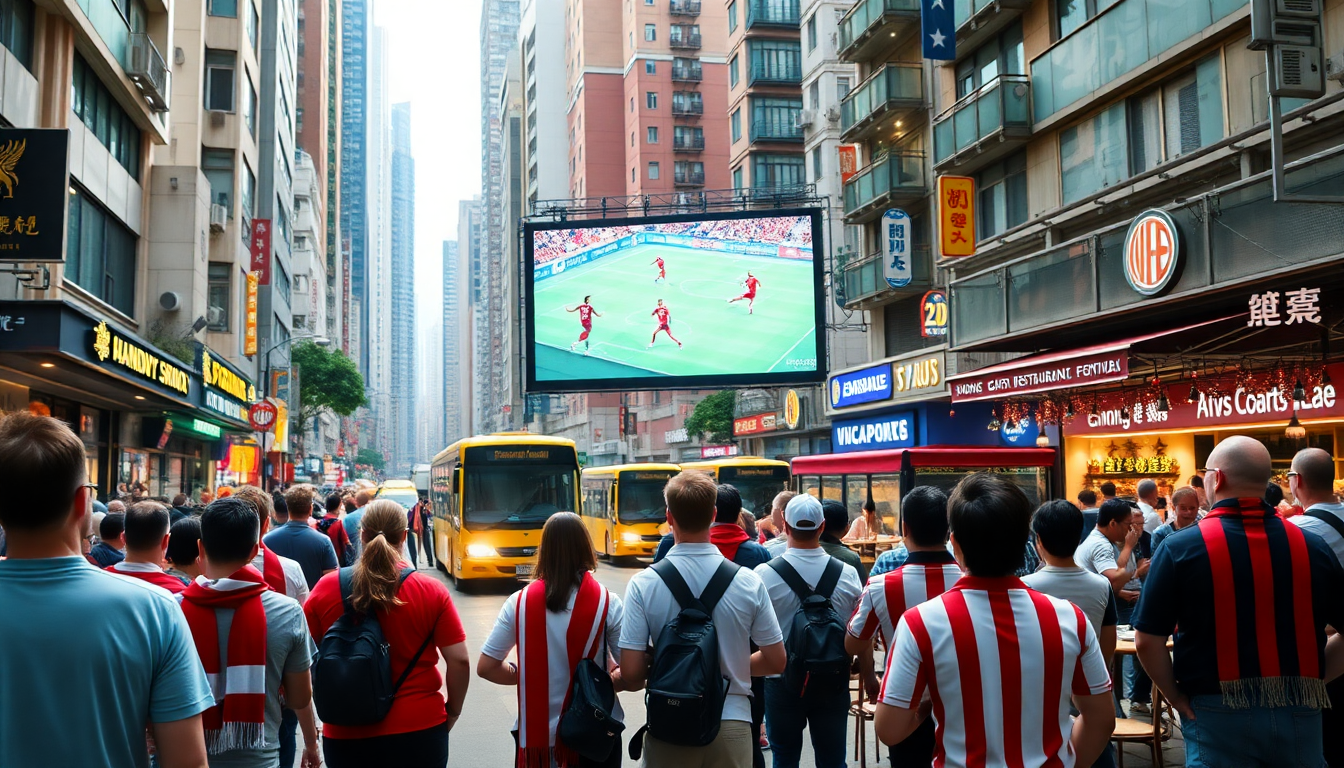Table of Contents
The recent Hong Kong Football Festival has highlighted just how much major sporting events can boost urban economies. With top-tier clubs like Liverpool and AC Milan taking center stage, this eight-day festival is set to bring in a whopping HK$428 million (around US$54.5 million) in economic benefits.
This impact ripples through various sectors, including retail, hospitality, and transportation. Isn’t it fascinating how sports can be more than just games? They can actually drive growth and energize local economies!
Economic benefits and sectorial growth
The influx of football fans during the festival has triggered a surge in demand across different industries.
Hotel representatives are already buzzing about an expected 12 percent increase in room rates compared to the same period last year, surpassing earlier projections of an 8 percent rise. This spike clearly shows that as thousands flock to the city for the event, the hospitality sector benefits tremendously.
It’s a classic example of how sporting events and local businesses work hand in hand.
But it’s not just hotels that are cashing in—the retail sector is poised to see significant gains as well. With more fans milling around the event venues, local shops and restaurants are likely to experience a sales boom as both locals and international visitors hunt for dining and shopping experiences.
Plus, public transport will be buzzing with activity as more people use it to attend matches and related festivities, further spurring economic activity. Who doesn’t love a thriving city atmosphere?
Attendance and fan engagement
The attendance figures from the festival have been nothing short of impressive.
On the opening days alone, over 35,000 fans turned out for open training sessions featuring Liverpool and AC Milan, showcasing the excitement surrounding the event. The match between these two giants drew a record crowd of 49,704, marking the largest attendance for a live football match in Hong Kong.
These numbers not only reveal the popularity of these clubs but also hint at the potential for future events to draw even larger crowds. Just imagine what that would mean for the city!
TEG Sport, the festival’s organizer, expressed enthusiasm over the incredible demand, not just from local fans but also from those traveling from mainland China and beyond. This broader interest speaks volumes—football is more than a game; it’s a global phenomenon that unites fans and contributes to the local economy. How cool is that?
Long-term implications of sporting events
The long-term effects of hosting large-scale sporting events can be truly transformative. Beyond the immediate economic boost, successful festivals can bolster a city’s reputation as a lively sports hub. This not only paves the way for future events but also encourages tourism, as visitors might return to explore the city’s rich offerings beyond the festival. Talk about lasting economic benefits!
Moreover, the visibility gained from international sporting events can spark increased investment in local infrastructure. Improvements in transport and hospitality facilities not only elevate the experience for visitors but also enhance the quality of life for residents. It’s really a win-win situation for everyone involved.
In conclusion, the Hong Kong Football Festival serves as a prime example of the dynamic relationship between major sporting events and local economies. As cities begin to recognize the potential benefits of hosting such festivals, they can develop strategies to maximize their economic impact, ensuring that the legacy of these events lasts long after the final whistle. Isn’t it exciting to think about what future festivals could bring?





